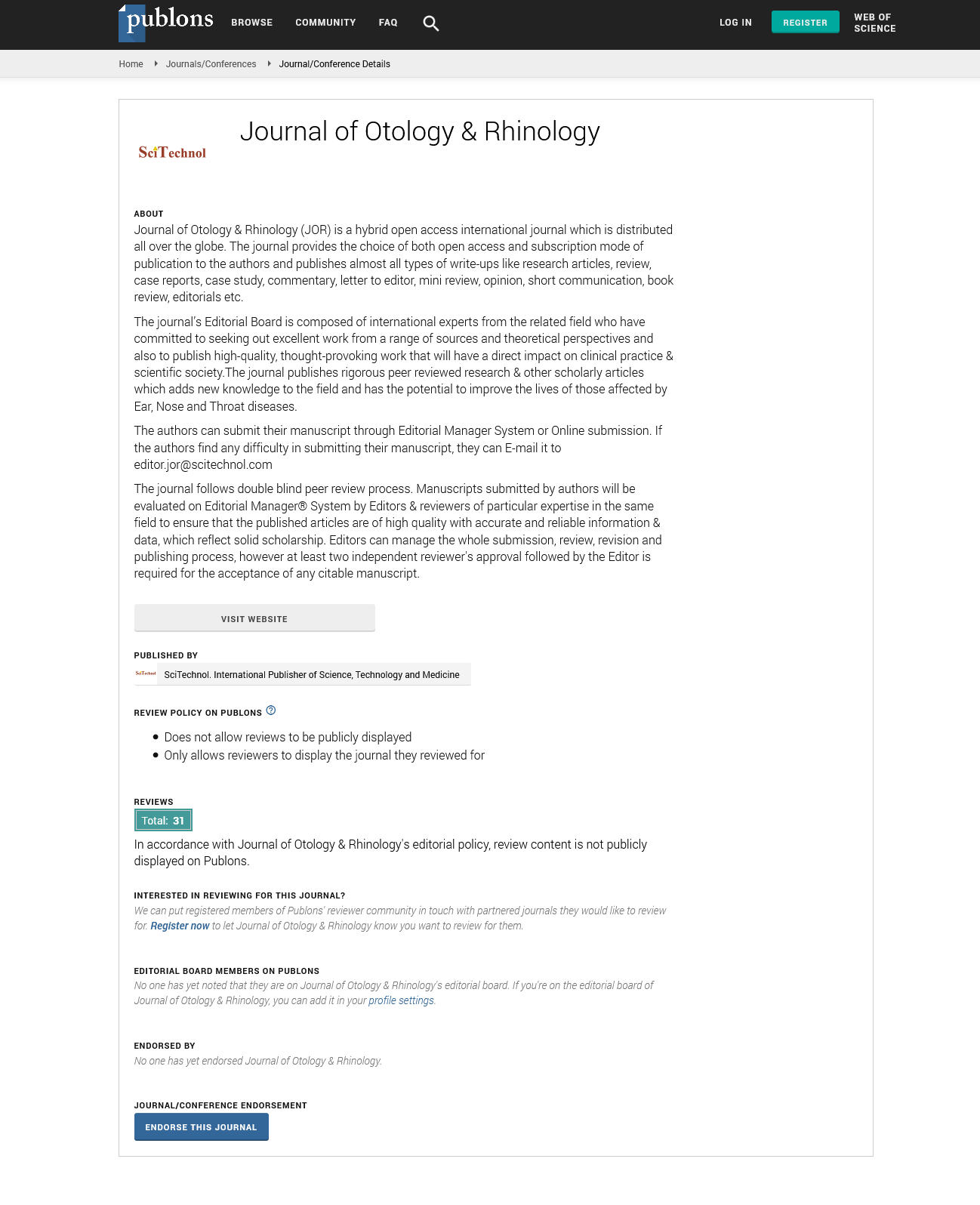Deformational plagiocephaly: Does severity correlate with developmental delay
Brian Andrews
University of Kansas Medical Center, USA
: J Otol Rhinol
Abstract
Purpose: The purpose of this study is to determine if the severity of cranial malformation correlates with the degree of developmental delay in infants with deformational plagiocephaly. Introduction: Many studies have demonstrated a positive correlation between deformational plagiocephaly (DP) and developmental delay in neonates with head shape anomalies. Despite this association and a five-fold increase in incidence of DP over the past two decades, there are currently no guidelines regarding screening for developmental delay in neonates with DP. Furthermore, there are not clinical clues to help identify infants with DP who are at the greatest risk for developmental delay. Methods: A prospective non-randomized study was performed. Infants diagnosed with DP who had no prior intervention were eligible for enrollment. Cranial deformity was measured by cross-cranial measurements using calipers, and developmental delay was measured using the Bayley Scales of Infant and Toddler Development, Third Edition (Bayley-III). Correlation between cranial deformity and developmental delay was analyzed using a linear regression. Results: Eighteen infants, aged 4.1 to 9.6 months (mean=6.5 mo) diagnosed with DP were studied. Developmental delay was observed on the composite motor (n=4 of 15, 26.7%) and the composite language scales (n=3 of 18, 16.7%), but not on the cognitive scale. Severity of cranial deformity did not correlate with scores on any Bayley-III scales (cognitive R2=0.009, p=0.715; composite language R2=0.79, p=0.257; composite motor R2=0.041, p=0.47). Conclusion: This study demonstrates that severity of cranial deformity cannot be used to predict the presence or degree of developmental delay in neonates with DP. Craniofacial surgeons should be aware of the risk of developmental delay in any neonate with DP. Developmental testing should be considered for any neonate with DP who warrants concerns as part of any craniofacial clinic work-up.
Biography
Brian Andrews MD/MA is an Associate Professor and the Director of Craniofacial Surgery at the University of Kansas Medical Center in Kansas City, Kansas, USA. He completed residencies in Otolaryngology-Head & Neck Surgery at the University of Iowa and Plastic Surgery residency training at the Combined Harvard Program as well as a fellowship in Craniofacial Surgery at the University of California-Los Angeles (UCLA) under the mentorship of Dr. Henry Kawamoto. His clinical practice focuses on pediatric and adult craniofacial reconstruction as well as basic science research studying neurologic function associated with skull defects and disorders.
 Spanish
Spanish  Chinese
Chinese  Russian
Russian  German
German  French
French  Japanese
Japanese  Portuguese
Portuguese  Hindi
Hindi 


